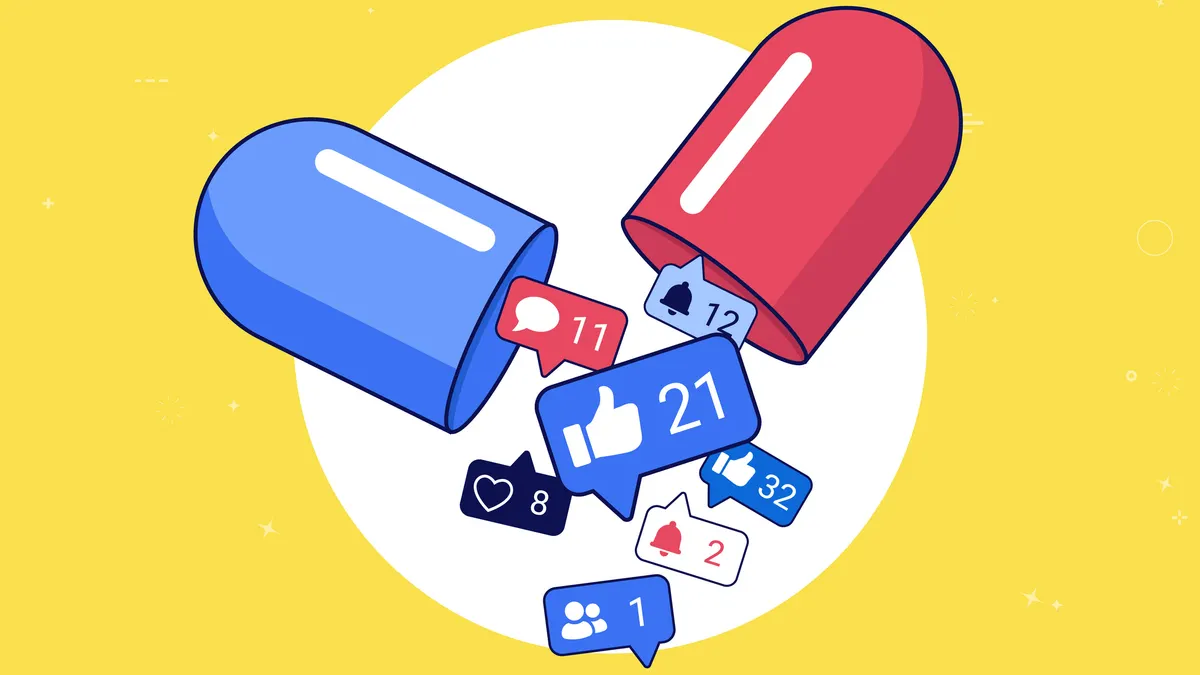As communication channels expand, field-based sales representatives will be pivotal in coordinating communications with HCPs to support educational needs and ensure value is delivered no matter which channel is used.
Life-sciences companies have a significant need to build relationships with healthcare providers (HCPs), patients, and caregivers.
Healthcare providers are under tremendous pressure to see as many patients as possible each day, and with Affordable Care Act (ACA)  provisions there is a greater emphasis on patient outcomes. Digital tools provide more opportunities to engage with HCPs in sales interactions through channels HCPs prefer and at their convenience. An article in the January 2015 issue of PharmaVOICE indicates that “…sales reps will continue to have a crucial role in communicating drug information to physicians, but the ways in which they connect with the customer are changing dramatically."
provisions there is a greater emphasis on patient outcomes. Digital tools provide more opportunities to engage with HCPs in sales interactions through channels HCPs prefer and at their convenience. An article in the January 2015 issue of PharmaVOICE indicates that “…sales reps will continue to have a crucial role in communicating drug information to physicians, but the ways in which they connect with the customer are changing dramatically."
Additionally, Manhattan Research, a Decisions Resources Group company, published results from its 2014 ePharma Physician survey that showed that physicians are looking for life-sciences companies to help keep patients engaged in their care by providing patient services. The survey outlines physician expectations that life-sciences companies take a leadership role in developing tools to keep patients on therapy and improve patient outcomes. The survey found that seven of 10 ePharma physicians somewhat or strongly agree that life-sciences companies must provide more resources and services alongside drugs and treatments to remain relevant in the emerging healthcare system.
For patients and caregivers, in general, appointments with healthcare providers are fast-paced and short. And oftentimes, patients do not realize they have questions until after the appointment has ended.
Healthcare providers, patients, and caregivers have a significant need for on-demand and immediate access to company representatives.
One of the most effective and efficient options for providing this access is through a call center. But operating an internal call center requires a significant financial investment for staff and technology resources.
Partnering with a pharmaceutical call center provides HCPs, patients, and caregivers with access to educational materials and highly trained personnel through the channels and at the times they prefer.
Call centers support life-sciences companies by:
- Boosting patient recruitment and referrals for clinical trials.
- Processing sample requests.
- Scheduling appointments for sales representatives to visit healthcare providers.
- Supplementing field-based promotional activities.
- Increasing patient adherence to treatments and trials.
- Providing on-demand support to answer questions from healthcare providers, patients, and caregivers.
The Role of Life-Sciences Companies in Supporting Patient Adherence
Life-sciences companies have the specialized knowledge to help HCPs, patients, and caregivers manage health conditions. Patient support programs can increase adherence rates, which can have a positive impact on patient outcomes.
Valuable patient and caregiver support programs focus on the patient and help patients meet their needs and overcome challenges. Patient and caregiver support programs are particularly effective in helping patients and caregivers in these situations:
- Treating a chronic condition, as treating many cancers is becoming
- Complicated or challenging dosing or administration for a treatment
- Potential for significant treatment side effects
- Low rates of patient retention
Successful patient support programs begin with a focus on the patient, and strive to provide value to patients and caregivers. A critical starting point is to understand patient needs and behaviors in managing their condition and treatment. It is important to understand the behaviors patients exhibit and why. The understanding of patients and their treatment journey is at the center of the process of developing targeted and personalized approaches that support patients in meaningful ways. Targeted and personalized approaches build a sense of value, commitment, and trust with patients. If patients are able to overcome challenges they will stay on therapy, which provides them with enhanced outcomes, greater quality of life, and potentially decreased healthcare costs.
Patients are looking for information to help them manage their health conditions, and life-science companies have insights and knowledge that can help patients. Patients are using online resources for healthcare education and support.
Technological advances provide many opportunities for delivering customized information. Some of the newest trends being used in patient support programs include:
- On-demand live call center support.
- Online resources through websites and social networking sites.
- Click-to-chat support through websites.
- Mobile sites and applications.
- Vital sign monitoring devices.
Communication is the heart of a successful patient adherence program. Pharmaceutical call centers are an invaluable resource to provide 24/7 access to operators and health coaches to answer questions. Operators and health coaches speak with patients on a daily basis, and they have invaluable insights into the areas that are most challenging and concerning for patients and caregivers. An added benefit is the ability to communicate in real time with patients and caregivers to remind them about appointments and prescription refills, and to quickly process requests for educational materials.
 Online resources such as websites, click-to-chat support, and social networking sites are ideally suited to provide individualized and targeted information, based on patient characteristics. In December 2011 the FDA released a guidance to industry on responding to unsolicited requests for off-label information from patients. The FDA recognizes that there is benefit and value for life-sciences companies to respond because they know their product the best. The FDA is placing trust in life sciences companies to provide off-label information appropriately and with integrity.
Online resources such as websites, click-to-chat support, and social networking sites are ideally suited to provide individualized and targeted information, based on patient characteristics. In December 2011 the FDA released a guidance to industry on responding to unsolicited requests for off-label information from patients. The FDA recognizes that there is benefit and value for life-sciences companies to respond because they know their product the best. The FDA is placing trust in life sciences companies to provide off-label information appropriately and with integrity.
Mobile applications are becoming increasingly more often used to access information, communicate alerts about a particular product, and provide reminders to patients about appointments and refills. It is important to understand if target patient populations are likely to retrieve information via mobile devices. If so, it’s worth the investment to develop a mobile application so patients can access materials through mobile devices such as tablets and smartphones, and to develop materials specifically suited to be interacted with and viewed on mobile devices.
Additionally, there is growing interest in understanding if connected health technologies can engage and activate patients to manage their health and healthcare. Patients are increasingly using online technologies and intelligent devices to take charge of their health and manage chronic conditions. There is growing evidence that connected health technologies and patient activation may increase patient adherence to oral cancer treatments, lower patient distress, decrease emergency room visits, and lower costs.
Connected health technologies and devices provide physicians and healthcare providers with timely information on a patient’s condition and allow them to make immediate changes if necessary. These technologies are becoming more widely used and the impact they can have on a patient’s health today is profound. If you are considering connected health technologies as a part of your patient support program, think about how the information will be provided to providers and what their capabilities are to accept and act on this data.
The future of patient support is centered on empowering patients to take an active role in managing their conditions. Patients need information, support, and guidance from their physicians and healthcare providers. This can be an overwhelming task for providers given the demands on their time. Opportunities exist for life-science companies to provide information and educational materials through impactful programs that help patients manage their condition and adhere to treatment.
Implementing a Multi-Channel Approach to Meet HCP Educational Needs
Healthcare providers also have educational and informational needs that life-sciences companies are uniquely qualified to meet given their in-depth knowledge of specific disease states and treatments. Given the changes brought about through the implementation of the ACA, HCPs have more demands on their time and greater incentives to ensure that patient outcomes are enhanced.
Today’s environment requires a matrix model that enables education and interactions through various channels and at various times. Many companies are augmenting their field-based reps with resources such as tele-detailing, live video detailing, online chats, websites, and mobile apps that are available to interact with HCPs at their convenience.
Multi-channel communication initiatives are effective in a number of situations including:
- Augmenting sales and promotional activities through interactions with call center representatives to answer questions, share information, and schedule appointments for field-based sales representatives.
- Building relationships with office staff, thereby ensuring they have a venue for answers to their questions and for requesting samples and educational materials.
- Expanding territories for field-based representatives to ensure all physicians and HCPs in a given territory have regular interactions with company representatives.
- Providing promotional support for new indications and new offerings from the company, such as support groups or prescription rebates.
The key is to integrate all communication channels so they are complementary and valuable. As communication channels expand, field-based sales representatives will be pivotal in coordinating communications with HCPs to support educational needs and ensure value is delivered no matter which channel is used. (PV)

Tunstall delivers customized 24/7 healthcare communication services to connect individuals, caregivers, and healthcare providers, drive awareness and knowledge, support patient adherence, and empower patients. Our products and services enhance patient care, improve outcomes, and increase operational efficiencies for hospitals, medical centers, health systems, payers, and life science companies. For more information, visit www.americas.tunstall.com.


















